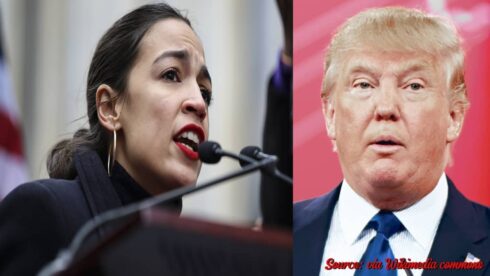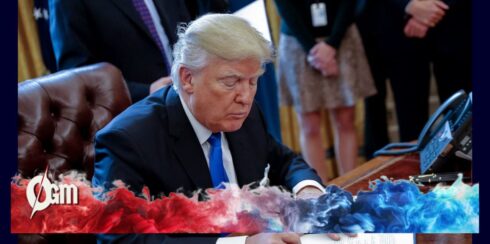Congresswoman Alexandria Ocasio-Cortez (D-NY) has officially announced her candidacy to become the leading Democrat on the influential House Oversight and Reform Committee. This move could significantly elevate her role in shaping oversight policies during former President Donald Trump’s second term in office. In a letter to her Democratic colleagues, Alexanderia Ocasio-Cortez described the opportunity as both “profound and consequential,” emphasizing the weight of the responsibilities associated with the role.
The position will allow the Congresswoman, Alexandria Ocasio-Cortez often referred to by her initials “AOC,” to spearhead efforts to hold the Trump administration accountable, a central theme of her political vision. Her candidacy marks a potential shift in the committee’s focus toward economic inequality and systemic reform, signaling a continuation of her progressive advocacy.
A Call to Action: Accountability and Equality at the Forefront
Alexanderia Ocasio-Cortez emphasized her intent to build on the Oversight Committee’s legacy of holding administrations accountable. In her letter, she highlighted economic inequality and precarious living conditions as key issues threatening the American way of life. This aligns with her broader agenda of addressing systemic inequities in health care, housing, and wages.
The Congresswoman has also signaled her readiness to challenge entrenched systems while working across the aisle on bipartisan issues. Alexandria Ocasio-Cortez’s commitment to tackling pharmacy benefit manager reform is one example, illustrating her pragmatic approach to achieving meaningful change in healthcare policy.
Democratic Contest for Leadership Intensifies
Alexandria Ocasio-Cortez’s bid pits her against Virginia Congressman Gerry Connolly, a seasoned legislator with years of experience on the committee. The leadership contest emerged following Congressman Jamie Raskin’s decision to step aside and take up the top role on the Judiciary Committee. This development has created a high-stakes race within the Democratic caucus for one of the most powerful oversight roles in Congress.
Connolly brings a wealth of institutional knowledge and a more centrist perspective, offering an alternative to AOC’s progressive agenda. The outcome of this contest could shape the direction of the Oversight Committee’s priorities in the coming years.
Balancing Bipartisanship and Aggressive Oversight
In her campaign for the position, Alexandria Ocasio-Cortez has pledged a dual approach: collaboration and confrontation. While she has expressed willingness to work with Republicans on certain bipartisan issues, she made it clear she will fiercely oppose policies that undermine progressive values. “I’ll give them hell where we disagree,” she declared, underscoring her commitment to holding the Trump administration accountable.
This balancing act could prove challenging in a deeply polarized Congress, but Alexandria Ocasio Cortez’s track record of navigating complex political dynamics suggests she is prepared for the task. Her candidacy reflects a broader Democratic strategy to maintain relevance and resilience in the face of Republican majorities.
Potential Implications for the Committee and Policy Direction
Should Alexandria Ocasio-Cortez secure the leadership role, the House Oversight Committee may adopt a more progressive stance on issues ranging from corporate accountability to climate change. Her tenure could prioritize investigations into systemic inequality and Trump-era policies, particularly those affecting vulnerable communities.
This shift could also redefine the Oversight Committee’s role in addressing economic precarity and advancing structural reforms. Alexandria Ocasio-Cortez’s leadership would likely bring heightened public attention to committee proceedings, amplifying its impact on national debates.
A Political Earthquake in the Making
Alexandria Ocasio Cortez’s bid for this leadership position has been described as a “political earthquake,” reflecting its potential to reshape Democratic priorities. As a prominent figure within the progressive movement, her leadership could galvanize younger, more diverse constituencies, solidifying their engagement in the political process.
This announcement signals not only a significant step in Alexanderia Ocasio-Cortez’s political career but also a defining moment for the Democratic Party. The outcome of this leadership race will determine whether the party opts for a bold, progressive future or a more traditional, centrist approach to governance.














